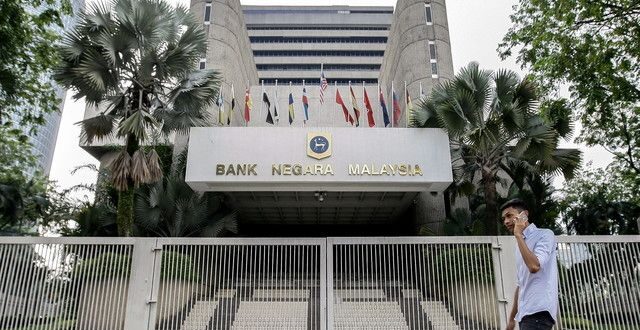PETALING JAYA: The FBM KLCI breached the 1,500-point level, extending its winning streak to a one-year high and signalling a stable risk appetite in the market following Bank Negara’s decision to maintain the overnight policy rate (OPR) at 3%.
The FBM KLCI ended the day at 1,504.10 or 7.99 points higher from Tuesday’s close of 1,496.11.
The market displayed a bullish trend in terms of breadth, as advancers outnumbered decliners at 690 to 360. Additionally, there were 431 unchanged counters, 806 that remained untraded, and 19 others that were suspended.
Bank Negara announced yesterday that the OPR will remain unchanged and expects local economic growth to continue to be supported by exports recovery and stable domestic expenditure, as inflation is likely to remain modest.
The central bank said the monetary policy stance remains supportive of the economy and is consistent with the current assessment of the inflation and growth prospects.
“The monetary policy committee (MPC) remains vigilant to ongoing developments to inform the assessment on the outlook of domestic inflation and growth.
“The MPC will ensure that the monetary policy stance remains conducive to sustainable economic growth amid price stability,” Bank Negara said in a statement yesterday.
While factors like domestic demand amid strong labour market conditions are expected to continue to drive the global economy, Bank Negara said the outlook remains subject to downside risks derived from an escalation of geopolitical tensions, higher-than-anticipated inflation outturns and heightened volatility in global financial markets.
“There are further signs of recovery in the electrical and electronics sector, but global trade remains soft partly due to the continued shift in spending from goods to services and ongoing trade restrictions.
“While China’s economy continues to show signs of improvement, its recovery remains modest given the weakness in the property market,” the central bank said.
As for inflation, while global headline and core inflation has edged downwards in recent months, it continues to be above average.
In the near term, the monetary policy stance is likely to remain tight.
Nevertheless, the central bank said for the majority of central banks, the tightening cycle has peaked.
On the economy, the overall growth for 2023 has expanded within expectations and Bank Negara said growth is expected to improve this year, backed by a recovery in exports and resilient domestic expenditure.
“Continued employment and wage growth remain supportive of household spending.
“Tourist arrivals and spending are expected to improve further.
“Investment activity would be supported by continued progress of multi-year projects in both the private and public sectors and implementation of catalytic initiatives under the national master plans,” the central bank said.
However, the growth outlook also remains subject to downside risks from weaker-than-expected external demand and larger declines in commodity production.
Bank Negara added greater spillover from the tech upcycle, stronger-than-expected tourism activity and faster implementation of existing and new projects are upside risks to growth.
In the fourth quarter of 2023, lower cost pressures amid stabilising demand conditions continue to see headline and core inflation moderating.
On the whole, both headline and core inflation for 2023 were within expectations, averaging for the year at 2.5% and 3%, respectively.
Bank Negara also noted the outlook for inflation and demand conditions will be affected by the government’s intention to review price controls and subsidies in 2024.
“In 2024, inflation is expected to remain modest, broadly reflecting stable cost and demand conditions.
“Risks to the inflation outlook remain highly subject to changes to domestic policy on subsidies and price controls, as well as global commodity prices and financial market developments,” the central bank said.
The central bank also said the recent ringgit movements were primarily driven by external factors and were not reflective of the current domestic economic performance and prospects.
“Financial institutions continue to operate with strong capital and liquidity buffers, with domestic financial conditions remaining conducive to sustain credit growth,” Bank Negara said.
 BeritaKini.biz Berita Viral Terkini di Malaysia
BeritaKini.biz Berita Viral Terkini di Malaysia





